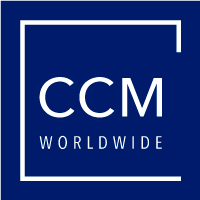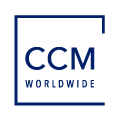Recrutement d’un Consultant (Firme) pour la Définition des Contours Liés à la Mise en Place de l’Enseignement Fondamental au Cameroun
Full description of the project
The overall objective of the consultation is to conduct a comprehensive study for the implementation of basic education in the Cameroonian education system. The study should address all dimensions of this issue and define an action plan leading to the implementation of the reform in question. For each of the points mentioned, it should consider the duality of the Cameroonian education system (Anglophone/Francophone):
- Clarify the concept of basic education to give a clear and unambiguous understanding;
- Current international experiences could be mentioned;
- To define the institutional framework of basic education. It will be a question of free education (for families) and its financing, of the level of application of this free education (total, partial, i.e. limited to the primary cycle?). The institutional framework should also specify its duration, the possible cycles of study (basic 1 and basic 2);
- Propose a brief diagnostic analysis of the current educational system in the perspective of basic education to identify strengths and weaknesses, in order to highlight the necessary adjustments to the current system for the implementation of basic education in Cameroon;
- To highlight the challenges, opportunities and risks of establishing basic education in relation to the country’s economic and social development prospects;
- To define the possible contours of basic education by describing the organization of its administration, of the school network (school continuum or different frameworks, i.e. in basic education on the one hand and secondary education on the other) with the implications on the end of primary school examination and on the entrance exam for the 6’m. /1” year. The same applies to the schooling profiles and the pace of its implementation;
- Decline its implications at the pedagogical level by defining the skills to be developed by the students and the diplomas that will sanction the end of the cycles and/or the end of the studies. Similarly, the question of teachers’ status and initial training will be addressed. It will also be necessary to revise the curricula, which will necessarily involve the disciplines to be taught and the content of the lessons and the goals to be achieved;
- Clearly define the mechanisms and tools for the management of flows and evaluate the global budget for the implementation of basic education in Cameroon;
- Decline its implications at the pedagogical level by defining the skills to be developed by the students and the diplomas that will sanction the end of the cycles and/or the end of the studies. Similarly, the question of teachers’ status and initial training will be addressed. It will also be necessary to revise the curricula, which will necessarily involve the disciplines to be taught and the content of the lessons and the goals to be achieved;
- Clearly define the mechanisms and tools for the management of flows and evaluate the global budget for the implementation of basic education in Cameroon;
Pays
Bénéficiaire
Organisme de financement
European Union (EU)
Full description of the project
The overall objective of the consultation is to conduct a comprehensive study for the implementation of basic education in the Cameroonian education system. The study should address all dimensions of this issue and define an action plan leading to the implementation of the reform in question. For each of the points mentioned, it should consider the duality of the Cameroonian education system (Anglophone/Francophone):
- Clarify the concept of basic education to give a clear and unambiguous understanding;
- Current international experiences could be mentioned;
- To define the institutional framework of basic education. It will be a question of free education (for families) and its financing, of the level of application of this free education (total, partial, i.e. limited to the primary cycle?). The institutional framework should also specify its duration, the possible cycles of study (basic 1 and basic 2);
- Propose a brief diagnostic analysis of the current educational system in the perspective of basic education to identify strengths and weaknesses, in order to highlight the necessary adjustments to the current system for the implementation of basic education in Cameroon;
- To highlight the challenges, opportunities and risks of establishing basic education in relation to the country’s economic and social development prospects;
- To define the possible contours of basic education by describing the organization of its administration, of the school network (school continuum or different frameworks, i.e. in basic education on the one hand and secondary education on the other) with the implications on the end of primary school examination and on the entrance exam for the 6’m. /1” year. The same applies to the schooling profiles and the pace of its implementation;
- Decline its implications at the pedagogical level by defining the skills to be developed by the students and the diplomas that will sanction the end of the cycles and/or the end of the studies. Similarly, the question of teachers’ status and initial training will be addressed. It will also be necessary to revise the curricula, which will necessarily involve the disciplines to be taught and the content of the lessons and the goals to be achieved;
- Clearly define the mechanisms and tools for the management of flows and evaluate the global budget for the implementation of basic education in Cameroon;
- Decline its implications at the pedagogical level by defining the skills to be developed by the students and the diplomas that will sanction the end of the cycles and/or the end of the studies. Similarly, the question of teachers’ status and initial training will be addressed. It will also be necessary to revise the curricula, which will necessarily involve the disciplines to be taught and the content of the lessons and the goals to be achieved;
- Clearly define the mechanisms and tools for the management of flows and evaluate the global budget for the implementation of basic education in Cameroon;
Country
Recipient
Funding organization
European Union (EU)


